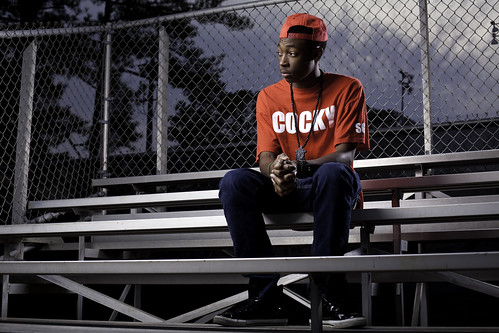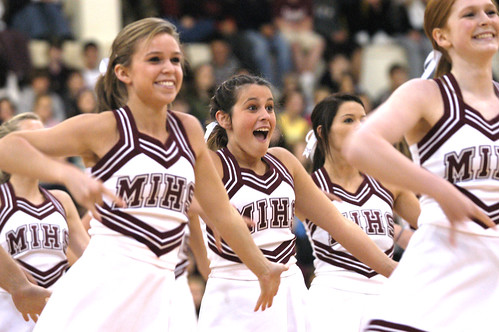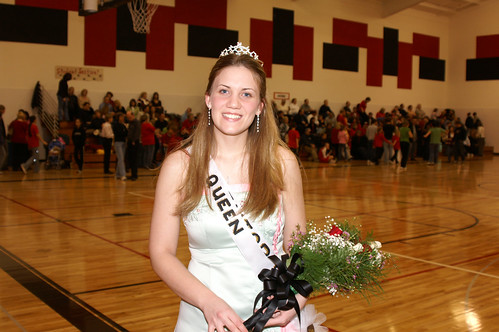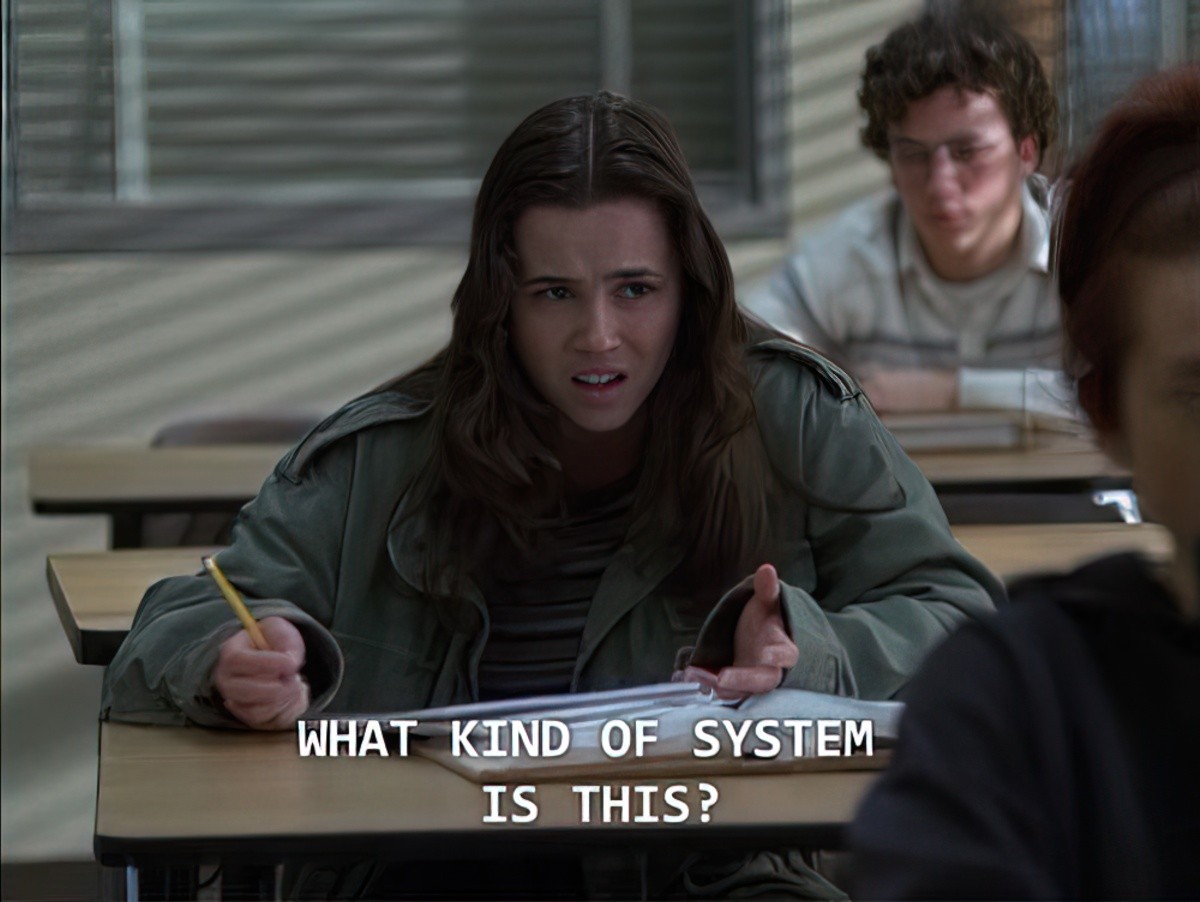Down Under, we grow up reading American books and watching American TV, so the following words are familiar even if we don’t use them ourselves. That said, our language and culture is borrowing more and more from North America. High schools often have faculties now instead of departments, and I’ve heard teenagers start to say ‘math class’ instead of ‘maths class’. New high schools are calling themselves colleges.
The following terms refer to Americans in high school AND in university.
We call Freshmen ‘first years’. At university in New Zealand, a ‘freshman’ is often required to do an ‘intermediate year’, which is the first year of a university course. It’s relatively easy to get into university there, in fact you don’t even have to pass a thing at high school – you can simply wait until you turn 25. But if you want to do a rigorous course such as medicine, you’ll have to do an intermediate year of health science, from which only the top students are accepted for further study.
In New Zealand they are called second years (university), or year tens (high school).
Sometimes Americans might say “I’m a junior” and will have to clarify if that’s high school (age 17) or college (age 21ish).
PAYING FOR UNIVERSITY IN AMERICA
- Prices vary between states but it looks to be around $10,000 tuition per year. Plus you need $10,000 (give or take) per year for room, board, fees, books.
- An out of state school public could be $20,000 a year and up.
- There is no free option at this time unless you apply for and receive a scholarship or grant.
- Also, there are government sponsored loans that are easy to get for young first time college students to help offset the costs. They have to be paid back monthly for many years after you graduate, which is the same in New Zealand and in Australia. In NZ it’s called the student loan scheme, and in Australia it is shortened to HECS.
- All American students can fill out the FAFSA https://en.wikipedia.
org/wiki/FAFSA which helps the govt decide how much money kids can get for college. - Low income Americans can get the expensive application fees waived for colleges but that’s about $100 each and doesn’t cover much in the scheme of things.
- There are also waivers available for the tests to get into college (SATs and ACTs). There are also waivers for low income high school students down under, so they can sit their tests even if their parent(s) can’t pay for it.
- You’ve probably heard Americans talk quite a lot about SATs. Here’s a confusing thing for us: elementary school SATs are different.
- You can actually sit for your SATs in many places around the world — they’re held six times per year.
- SAT stands for Scholastic Aptitude Test. It is administered by the College Board in the USA, and is a measure of the critical thinking skills needed for academic success. The SAT assesses how well you analyse and solve problems. (Some would argue that it tests how well you have already been educated, and how savvy you are at taking tests.)
- It is made up of three parts: Critical reading/Math/Writing
- Here’s a site that tells American college graduates where they might get into college based on their SATs and ACT scores.
- What’s a good SAT score? If you want to get into one of the best schools it seems you need about 1500 or above.
- But you also need to show that you’re a well-rounded person, and you should be into sports/arts/charity work.
OTHER AMERICAN TERMINOLOGY
BLEACHERS – For the longest time I thought this was something you’d find in a janitor’s closet. Then I read about some kids kissing behind the bleachers, and I realised the handle of a mop would hardly provide cover, so I took the time to look it up. Turns out they refer to those tiered seats you get on playing fields and lining gymnasiums. I have no idea what we call them, but I’ve never heard anyone talk about ‘bleachers’. Perhaps we call them ‘forms’. They’re not standard equipment, in any case.

JANITOR – But we don’t say ‘janitor’ either. That would sound distinctively American. We just say ‘cleaner’.
GRADUATE – In New Zealand you don’t ‘graduate’ high school. You just get your qualifications (or not) and finish up. You graduate from university.
CAFETERIA – New Zealand and Australian schools don’t tend to have those huge dining hall set-ups. We had to eat a packed lunch outside. If the weather was terrible we were (reluctantly) allowed to eat inside our home classroom, but in year ten, several drop-ins broke windows, so we were all locked out no matter the weather. I have memories of sitting inside a cleaner’s closet with two friends because it was snowing outside. (There were no bleachers in there.)
If students want to buy lunch (which is usually a meat pie because salad rolls are for pansies) they go to the ‘canteen’ or the ‘tuck shop’, but there’s no place to sit down and eat lunch at a civilised table, unless you go to an expensive private school. Even then, such privileges are often reserved for seniors.
‘SIGNING UP’ FOR CLASSES – This sounds more like something you’d do as a university student, but American books tell me that high school students ‘sign up’ for their classes at the start of an academic year. Senior high school students here do have a day in which you have to go in at the beginning of the year and show the timetabling teacher the marks you got, to prove you indeed still want to do the same subjects you’d picked before summer.
Down Under, there is a core of compulsory classes (English, maths, science) and even in senior high school, you have to select your subjects the year before, in the hope you’ll pass your end of year exams and get into them. Therefore, ‘signing up’ for a class is more a matter of visiting your subject teachers on the first day back and letting them know haven’t changed your mind about your subject choices over the summer holidays – or if you haven’t passed your NCEA courses, you’ll be having a sit down with a careers teacher to discuss your options. ‘Signing up’ sounds like there’s way more freedom than there actually is, because even with elective subjects, you’ve still got to choose something. (Maybe that’s the deception.)
CHEERLEADERS – I don’t know of any local high schools with a cheerleading team, and while I appreciate the strength and agility required, to me it is on a par with pole dancing. That said, there is a local gymnastics teacher who offers classes in cheerleading to little girls. (I suppose little boys could join in too, though I doubt it’s full of male participants.) Since pole dancing seems to have taken off lately, it wouldn’t surprise me if cheerleading took off in high schools here in the next generation. We do have cheerleading teams for regional and national rugby games, so the concept is here.

HOMECOMING QUEEN – I’m so glad we don’t have this tradition. Really. It sounds just awful. We do have end of school celebrations.
MIDDLE SCHOOL
I’ve been editing for more than ten years now. I still find definition of middle school in books confusing. For me, middle school was 7th and 8th grade, and I turned 13 in 8th. I still have to pause and process when 6th grade is middle school. It hurts my head.
— Alison Weiss (@alioop7) November 22, 2019
PROM – Some of our schools call them ‘balls’. Others call them ‘formals’. But I’ve not heard proms. What is it short for? There is usually an ‘after party’, which is shut down if the teachers get wind of it, then it moves somewhere else. Traditional high schools still teach their students ballroom dancing beforehand, and retain the ‘invite a partner’ thing, but more and more liberal high schools are deconstructing the idea of ‘partners’, and instead encourage their students to just turn up and have a good time when they get there. This is to avert the need for major stress for students who can’t find a partner, and avoids discrimination of non-heterosexual students, who are still banned from bringing their partners to the school ball at some schools, both state and religious. For a fictional, horror example of a prom, see Carrie by Stephen King.
In Australia, there is ‘schoolies’ week – an huge week-long party which started at Broadbeach. But not everyone is interested in attending that. It receives a lot of media attention every year because bad things happen there too. A lot of Australians have very fond memories of schoolies. In New Zealand, there isn’t a huge organised thing like that, but lots of students get together with friends and stay for a week in someone’s family bach (holiday home) or take a car trip around New Zealand before spending the rest of summer stacking shelves at a supermarket.

DRIVER ED – Are not usually run through a school in the way they are in America. Until recently, we got taught by our dads. But licences have gotten a little harder to pass, and have now turned into a formal industry. It’s hard to pass the tests unless you get taught by a qualified instructor. So more and more high schools now are taking the American model, and hiring driving instructors through the school. Unlike what I saw in Mr Holland’s Opus, these instructors are not their regular teachers, but contractors who specialise in driving instruction. In a film such as Mr Holland’s Opus we see that some high school teachers earn money over summer by teaching driving lessons. This is because America doesn’t pay their teachers well enough to sustain them over the entire year. Down here, driving instruction is a separate industry, though recently a lot of high schools are providing a driving program through the schools. Some even have their own designated car.
YEAR BOOKS – Most high schools seem to produce year books here, which are either put together by a teacher or by a group of students. Either way, I’ve not ever seen a ‘Student most likely to…’ situation. That sounds rather unkind to me. That’s not to say year books are not unkind, especially if the students collating photos have malevolent intention. Mind you, this is no worse than what goes on online, where ‘friends’ can tag you in the most heinous positions, and then share those photos with the world. I wonder if year books are on their way out everywhere. An online forum would be a less expensive way to share photos and memories of school. Mind you, its very fluidity is also its downfall.

